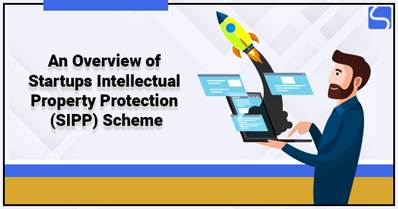Description

Disclaimer: Copyright infringement not intended.
Context
- The Start-Ups Intellectual Property Protection (SIPP) Scheme has now been revised and facilitation fees has been notably increased by at least 100%.
Background and Basics
Intellectual Property
- Intellectual Property is a creation of intellect (the human mind). The creative work is defined as a property if it complies with the law defining it.
- The creation or innovation can be any invention which may be scientific or technical, literary or artistic work, graphical representation, design, etc. It is an invention that is used for economic or business activity. In some countries, Intellectual Property is known as Industrial Property.
- Like any other property, Intellectual Property can be transferred, sold, or gifted.
What are Intellectual Property Rights?
- The original creator, inventor, or author of the work or invention is given exclusive rights over his creation, and these rights are called Intellectual Property Rights. The original owner/creator gives consent, and only then can someone else use the Intellectual Property.
- Intellectual Property Rights (IPR) are legal rights given to the inventor or creator to protect his invention or creation for a certain period.
What are different kinds of Intellectual Properties?
The different kinds of Intellectual Properties are:
- Copyright
- Patents
- Trademark
- Industrial Design
- Trade Secret
- Geographical Indications
.jpg)
How crucial are IPRs for Start-ups?
- In the modern economy, businesses are more competitive than ever before. Start-ups often find it hard to compete with the big giants. However, one can stay ahead of others by creating something innovative, and this creation is intellectual Property.
- here are many benefits for start-ups when they protect their Intellectual Property and acquire Intellectual Property Rights. Some of the benefits are:
- Level Playing Field
- A guard against exploitation
- Recovery of Cost Incurred
- Attracts Investment
- Commercialization and Trade
Start-Ups Intellectual Property Protection (SIPP)
- To protect and promote Intellectual Property Rights (IPR) of Startups and to encourage innovation and creativity among them, Government of India had launched a Scheme for facilitating Start-Ups Intellectual Property Protection (SIPP) in 2016.
- The scheme facilitated startups in filing and processing of their patent, design or trademark application through the assistance of IP Facilitators, whose fee was borne by the Office of the Controller General of Patents Designs and Trademarks, Department for Promotion of Industry and Internal Trade, Government of India.
- After its successful implementation resulting in a significant increase in IP fillings by Startups the Scheme was extended for a period of three years till 31st March 2023.
What is the Purpose of Start-ups Intellectual Property Protection (SIPP) Scheme?
- The Start-ups Intellectual Property Protection (SIPP) Scheme is focused on encouraging Intellectual Property Rights Registration (such as Copyright Registration, Trademark Registration & Patent Registration), awareness and promoting creativity and innovation;
- The Start-ups Intellectual Property Protection (SIPP) Scheme envisages guiding emerging technologies among start-ups and aiding them to commercialize them by way of giving access to high-quality Intellectual Property (IP) services & resources.
.jpg)
Eligibility Criteria for SIPP Scheme
- In this scheme, a start-up is a company that has been registered in India or not more than seven years before the application;
- The company shall cease to be a start-up if its turnover for the early financial years has more than Rs. 25 crores or it has completed seven years from the registration date;
- The company should be working towards the development, commercialisation, or innovation of new products and processes or services which are driven by technology;
- A start-up shall be entitled to getting the benefits of this scheme only after it has procured certification from the start-up certification board;
- The yearly turnover should not more than Rs. 25 crores in any preceding financial year;
- Moreover, the company is not formed by the splitting up or reconstruction of a business already in existence.
https://www.pib.gov.in/PressReleasePage.aspx?PRID=1880465#:~:text=The%20scheme%20facilitated%20startups%20in,Internal%20Trade%2C%20Government%20of%20India






.jpg)





